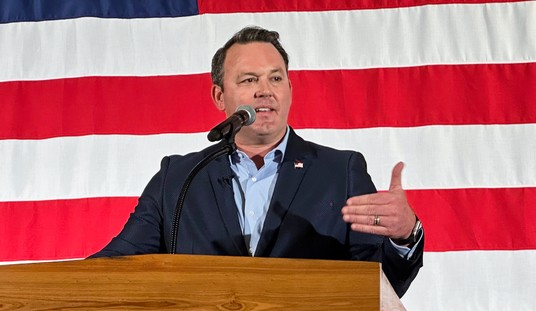While Rick Perry is battling a politically charged indictment over Travis County District Attorney Rosemary Lehmberg, it may come as little consolation that he has now joined the ranks of Kay Bailey Hutchison and Tom DeLay. But if you look on the larger scale and look back to the 1840s, one may come to realize that this indictment may serve as a positively prophetic turn of events for Perry’s 2016 hopes.
What Rick Perry probably doesn’t know is that he has a lot in common with John Tyler, the tenth president of the United States. Having just completed extensive research on President Tyler for my upcoming book Our Presidents Rock, I can state that the commonalities between the two men are uncannily obvious, in more ways than one.
First, John Tyler should have been a Texan, as seen through his absolute determination to have Texas become a state under his watch. Although Tyler was born in Virginia and spent his life in Virginia politics, he probably would have been a Texan had Texas been a part of the union at that time. But Tyler fixed that, too. Just over a month before leaving his presidential office, Tyler knew that Congress wouldn’t approve Texas’s annexation with the normal two-thirds majority necessary for a treaty. To remedy the situation, Tyler proposed annexation as a joint resolution which required only a simple majority. On February 28, 1845, Tyler oversaw the annexation of Texas. Thus, Perry, who has been the governor of Texas for the past fourteen years, has Tyler to thank for his state being a member of the United States of America in the first place.
Second, both men were and are champions of the Constitution and states’ rights. In the same way Rick Perry recently decided it was Texas’s right to defend her own border when the federal government failed to do so by sending 1,000 National Guard troops to the Texas-Mexico border, John Tyler refused to vote for bills during his time in the U.S. Congress that would have usurped state sovereignty by expanding the national government. John Tyler even isolated his own Whig party by defending his beliefs in states’ rights.
Third, both men were persecuted for issuing a veto.
Yes, vetoes have long been the subject of heated debate and partisan persecution. While Rick Perry is currently facing indictment, John Tyler was almost impeached by Congress after vetoing a tariff bill in 1842. In the same way Rick Perry wasn’t afraid to veto the funding for a Public Integrity Unit that was led by a woman who demonstrated everything but public integrity (in light of her arrest for DWI), John Tyler unabashedly vetoed Congress’s legislation for the Independent Treasury System not once, but twice—even though his own Whig party supported the bill. When President Tyler then vetoed Congress’s tariff bill, he turned his own party against him and, in their fury, the Whigs moved to impeach him. Rick Perry got the short end of the stick—he only got to veto the bill once before receiving his official chastisement.
Looking back through history and seeing the treatment of President John Tyler, it becomes easier to realize how quickly partisan politics can come into effect. In 1842, Congress and the Whigs had no grounds to try to impeach John Tyler—he had simply issued a veto on a piece of legislation with which he did not agree. The Whigs in Congress moved to impeach Tyler because he had abandoned his party in light of standing up for what he believed—and simply overturning the veto would have been too boring and drab. The same goes for Governor Rick Perry. Since when was a governor not allowed to veto a piece of legislation with which he disagreed, no matter the reason? And to those who say that Perry’s situation is different because he “threatened” to veto the funding before he actually did so, as if we haven’t heard a president warn Congress that he would veto a piece of legislation even if it passed both chambers, just look back to July 30 when President Obama “threatened… to veto the House’s border-spending bill.”
Where there is government, there will be partisan politics and there will be threats as politicians vie for power to get their way. We don’t have to watch House of Cards to discover that.
In the same way Congress was unable to impeach John Tyler (the motion failed 98 to 90), Rick Perry’s indictment charges will soon fall flat. In short, Rick Perry’s indictment is nothing new—rather this may serve as a precursor to a successful 2016 bid.
Modern-day John Tyler anyone?









Join the conversation as a VIP Member